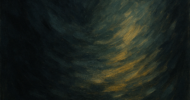Tolstoy. Dostoevsky. Repin. Stravinsky. While many people may not appreciate the significance of these Russian geniuses, or think that knowledge of them could enhance a pre-med education, I would not be the same person without learning about them. For me, pursuing a Russian major was more than a list of vaguely interesting classes or language study; it was a deeper dive into the qualities of a culture that I am passionate about. My studies even led to the chance to study abroad as a hospital volunteer for a summer in Moscow. There, I learned Russian terminology, protocols, and had the opportunity to experience the culture firsthand. In particular, I remember an older, superstitious Russian woman attempting to cure my runny nose by instructing me to snort vodka. While these experiences proved backwards to a young American, I came to respect and appreciate the Russian people, and I learned much from them. I was touched many times by Russians who afforded my nationality and culture respect despite our differences.
I also witnessed the health-related struggles faced by the people of Eastern Europe. For instance, one day a man came in for a checkup after receiving treatment for drinking varnish remover. To my surprise, the attending physician told me that this was a common occurrence. The poor Russian economy and remnant Soviet mentality led to increased alcoholism, especially among men. Combined with widespread poverty, this leads to common poisoning cases due to drinking anything with alcohol in it—antifreeze, aftershave, deicing fluid, and yes, even varnish remover. Despite my initial shock, I was grateful for this experience because it vividly illustrated the effect that our economic and social environments can have on health.
I also was grateful to observe the stark differences in the quality of medicine between the U.S. and Russia. While many of the physicians and health care workers whom I met in Moscow were very dedicated to their patients, I could never get used to seeing them smoking out of hospital windows or in the hospital stairwells.
Lastly, my Russian studies introduced me to the Ukrainian language and the tragic interwoven history of these two countries and cultures. I find myself moved by the devastation caused by the war in Ukraine. While, of course, it is difficult to know how knowing Russian will help my future career as a physician, I hope that one day I will get a chance to use my language skills to treat the peoples of Eastern Europe along with future immigrants and refugees.
While Tchaikovsky’s Overture may not have helped me study for the MCAT, my major has given me a greater appreciation for human life and what a privilege it is to help preserve it. To all pre-meds out there wondering if it is worth it to pursue an education in the humanities, I can promise that it is.
Alexander Camp is a medical student.





















![AI censorship threatens the lifeline of caregiver support [PODCAST]](https://kevinmd.com/wp-content/uploads/Design-2-190x100.jpg)
